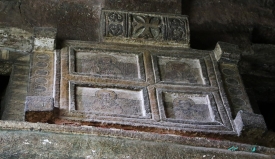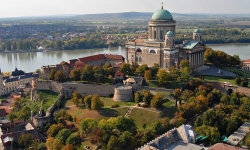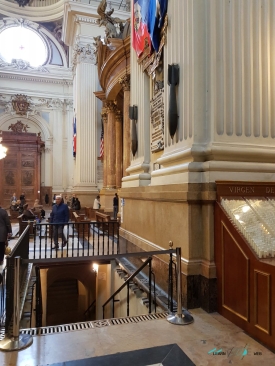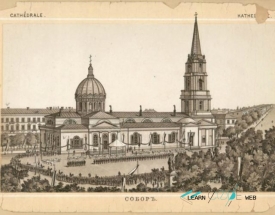ABOUT Petajavesi Old Church
The UNESCO World Heritage Site of the Petäjävesi Old Church tells the story of the Finnish people’s everyday life over four centuries. Built by Central Finland’s land-owning peasants in 1763–65 with their masterful carving skills, the Old Church has been the site of the most profound moments of life. The Old Church is beloved by the residents of Petäjävesi, and it is visited by thousands of enchanted tourists every year.
The origin of the Petäjävesi Old Church is an example of Finnish obstinacy. People back then did not wait around for permits or floor plans from Sweden, the ruling country of that time. Instead, the church was constructed according to the plans of the master church builder Jaakko Klemetinpoika Leppänen, who also led the construction process. The floors, the walls and the steep shingle roof were completed in summer 1763. In 1764, the interior of the church was finalised, and the windows were installed a year later.
The belfry and the passageway connecting the church and the belfry were built in 1821. The master builder was Leppänen’s grandson, Erkki Jaakonpoika Leppänen.
The church was abandoned in 1879 when a new church was built on the opposite shore of the Kirkkolahti bay. In spite of these plans, the Old Church was never decommissioned. The bells remained in the belfry and the graveyard was still used. Since 1920s, the Old Church has been maintained as a monument. The Finnish Heritage Agency adopted the responsibility for directing the renovation and maintenance of the church in 1950s. The surroundings of the church have been under restoration since the 1990s.
Source: https://petajavesioldchurch.fi/
The origin of the Petäjävesi Old Church is an example of Finnish obstinacy. People back then did not wait around for permits or floor plans from Sweden, the ruling country of that time. Instead, the church was constructed according to the plans of the master church builder Jaakko Klemetinpoika Leppänen, who also led the construction process. The floors, the walls and the steep shingle roof were completed in summer 1763. In 1764, the interior of the church was finalised, and the windows were installed a year later.
The belfry and the passageway connecting the church and the belfry were built in 1821. The master builder was Leppänen’s grandson, Erkki Jaakonpoika Leppänen.
The church was abandoned in 1879 when a new church was built on the opposite shore of the Kirkkolahti bay. In spite of these plans, the Old Church was never decommissioned. The bells remained in the belfry and the graveyard was still used. Since 1920s, the Old Church has been maintained as a monument. The Finnish Heritage Agency adopted the responsibility for directing the renovation and maintenance of the church in 1950s. The surroundings of the church have been under restoration since the 1990s.
Source: https://petajavesioldchurch.fi/






